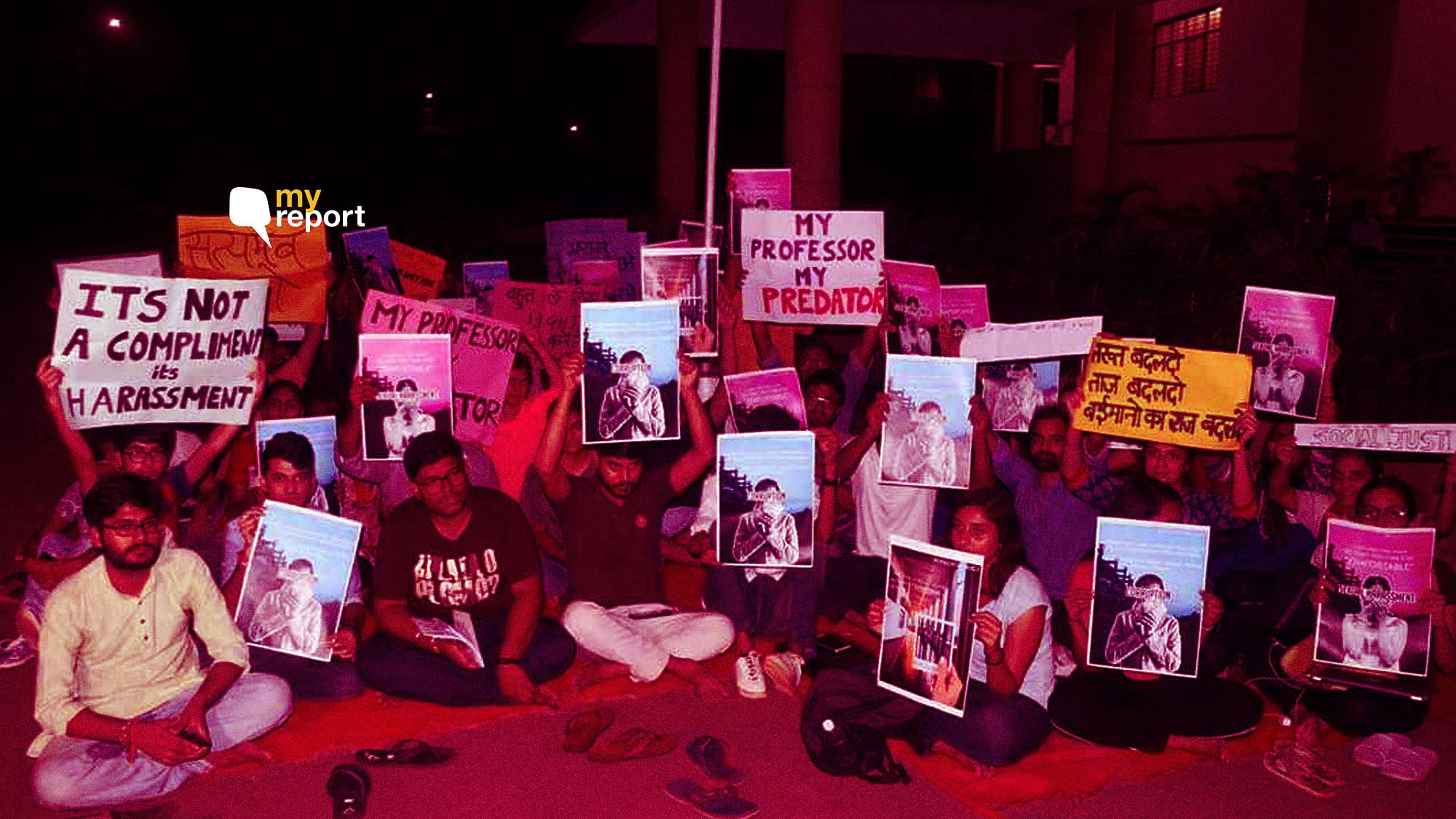Outraged Over ‘Nonchalant’ VC, HNLU Students Go on Hunger Strike
Having no other recourse, the students have resorted to a hunger strike.

On 27 August 2018, the Chhattisgarh High Court ousted Professor Sukh Pal Singh from the post of the vice chancellor of Hidayatullah National Law University, Atal Nagar (Naya Raipur) on grounds of irregularities in the procedure of his appointment. The student community of the university had long lamented the maladministration and apathy, and the removal of Professor Singh sparked a furore.
The students organised protests and initiated an indefinite strike. The key demands were: extension of hostel curfew timings, full access to the campus facilities, including the library, action against complaints of sexual harassment against faculty members, publication of key documents meant to be public, administrative restructuring, and institution of a review commission.
RS Sharma, the Principal Secretary of Law, Chhattisgarh, was appointed as the interim vice chancellor, and he acceded to most of the demands, and initiated a dialogue with the Student Bar Association (SBA) with regard to the others, which was accepted well, since previously even engagement with the students was denied by the administration.
On 20 September 2018, the Supreme Court of India pronounced an interim stay order to Singh, and pursuant to the same, he was reinstated as the vice chancellor on 25 September 2018. In light of these developments, the SBA convened a general body meeting between the vice chancellor, the faculty, and the spokespersons representing the students.
An instance was raked up from August 2018, where a student had personally reported an incident of harassment by one of her teachers to Singh, and submitted a written complaint for the same. However, she felt that no satisfactory action was taken, since neither of them was shifted out of the said teacher’s class, nor a formal investigation initiated. To this, Singh responded that he had confronted the teacher, who claimed that his actions were misconstrued by the students. He, however, added that further action could not be taken as he had to attend an ailing family member, and asked the students to ‘rationalise’ things.
Thereafter, the issues of opacity and financial indiscretions were raised.
The Right to Information Act mandates that the minutes of the meetings of the Executive Council be published. Singh replied that the matter was never brought to his attention, and when told that the SBA had filed three applications for it, he said that the SBA must have brought up the issue casually, and hence, was never given serious consideration by him. He further dismissed the issue by saying that it was an inconsequential matter.
Interestingly, in a fresh tranche of documents released by the university under pressure from the protesting students, striking facts have come to light. In a release dated 28 September 2018, the breakdown of the university’s cash reserves were declared. The university that has for the longest time claimed to be starved of funds has a standing corpus fund of Rs 98 crores, spread over 13 accounts in various national banks. To put things into perspective, Singh has claimed multiple times that the CG government curtailed grants to the University. To that effect, in August 2017, the University issued a notification suspending funding for moot court competitions, paper presentations etc.
However, when Sharma took interim charge of the university, he cleared all pending claims within a matter of days, and stated that funding from the state had never ceased, but was frozen because the university could not furnish required documents that held proof of how the funds were utilised.
Singh, however, maintains that the university has all documents in place (but were never published). Other questions about financial irregularities were vaguely dealt with, at one point even saying, “paise chale gaye toh kya?” in response to “…but sir, Rs 2 lakh have already been lost.”
Singh even tried to dismiss his destruction of public documents – which he has admitted on record – and accused the students of blowing issues out of proportion.
A refrain of Professor Singh seemed to be that he was unaware of the issues raised, and now that he was made aware, he said he would act on the same. Students claim that this one statement encapsulates the cause and fuel of the revolution – demands made by individual students and student representatives were met with deaf ears, and Singh only took cognizance of them when nearly 800 students collectively confronted him.
The students expressed dissatisfaction with the answers of Singh, and tendered a no-confidence resolution signed by around 800 students of the university, demanding his immediate resignation, and publication of the audit report by the Auditor General of Chhattisgarh.
He denied complying with the terms of the resolution, and the students declared another indefinite strike. Since then, seven members of the faculty and a majority of the non-teaching staff has also signed the no-confidence resolution. Over this, Singh, a professor of law, threatened to sue all students for contempt of the Supreme Court, when the students were actually in perfect compliance by allowing him to resume office, and were protesting against him pursuant to their fundamental rights.
Upon entering the fifth day of the protest with no results, the students decided to resort to the last recourse: a hunger strike.
On 1 October 2018, at 8 am, the students began an indefinite hunger strike in hope of a better tomorrow.
(At The Quint, we are answerable only to our audience. Play an active role in shaping our journalism by becoming a member. Because the truth is worth it.)